This blog was written by Teddy Woodhouse, Research Analyst & Advocate at the Web Foundation.
In assembling the data set for A4AI’s latest report on the quality of service for mobile broadband, our research team found universally promising trends with the adoption of mobile number portability in low- and middle-income countries (LMICs).
Across the three regions of our quality of service study (Africa, Asia, and Latin America and the Caribbean), countries that require mobile number portability (MNP) have faster downloads, faster uploads, more affordable prices for broadband data, more competitive mobile markets, and better scores on the A4AI Affordability Drivers Index on average than countries that do not. This trend remains strong in most cases even when controlling for average income. That is to say that countries that empower consumers with the option to carry their mobile number across operators see cascading positive impacts for users throughout the mobile market.
Mobile number portability refers to a mobile phone user’s ability to change operators and keep the same phone number. MNP, when required by the regulator, helps reduce the barrier that users face in switching from one operator to another. Without it, users are less able to leverage free market competition to their advantage in securing the best deal for mobile broadband services for themselves, and smaller operators can struggle to recruit new users. This can entrench incumbent operators in a more dominant position. By consequence, MNP can be understood as a core element to supporting a fair and competitive market for mobile broadband.
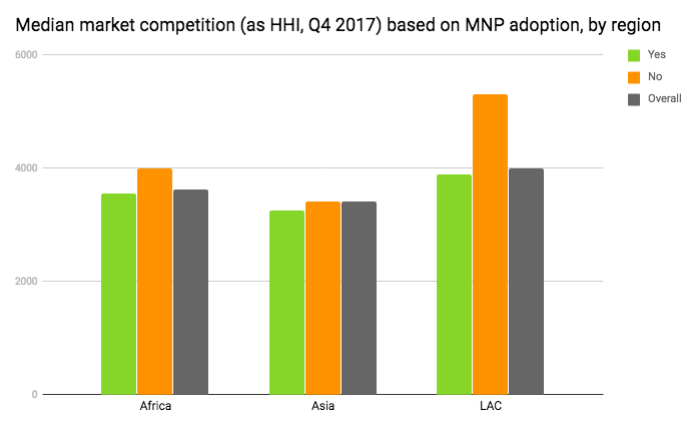
In all three regions studied, countries with MNP have more competitive markets. This is measured by taking the median scores on the Herfindahl-Hirschman Index (HHI), a commonly accepted standard for measuring market competition, in comparison with MNP adoption rates.
The impacts of mobile number portability are not isolated to the macro level of market competition. In bringing together A4AI’s broadband pricing data and our latest quality of service data, users who have the right to keep their phone number will also, on average, pay less for their data and have faster download and upload speeds.
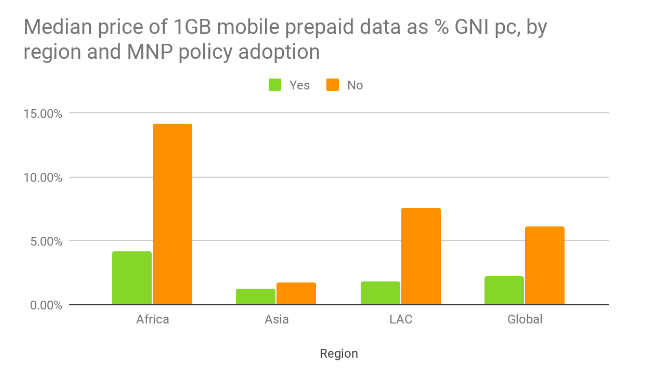
MNP seems to offer the greatest advantage to users in contexts where mobile broadband is the least affordable. As a percentage of income, the cost of 1GB of mobile broadband data for a user in an African country with MNP represents less than a third (30%) of what it does for a user in a country without it.
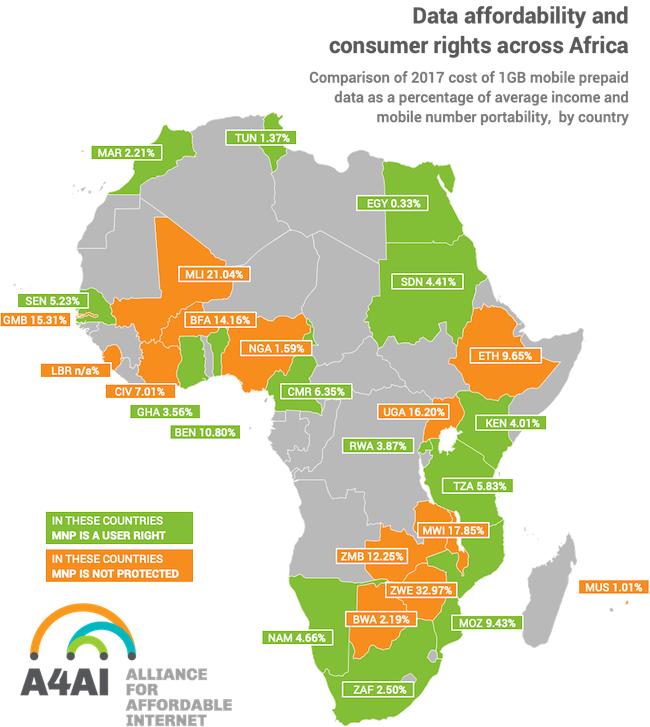
The trend is less decisive about data speeds, but it still holds globally that users in countries with mobile number portability have a better quality of service than those who do not. The regional exception within our data set are countries in Latin America and the Caribbean, but it is also the region (out of the three studied) with the fewest data points. By comparison, the trends in our most-measured region – Africa – are some of the most promising. The average user in an African country with MNP will have a median download speed of 315% that of the average user in a country without it.
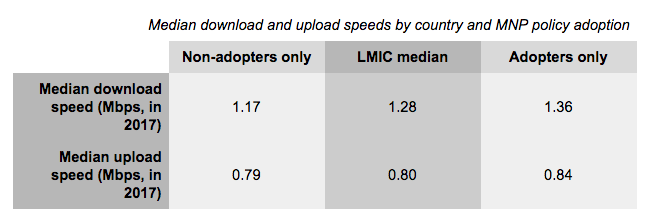
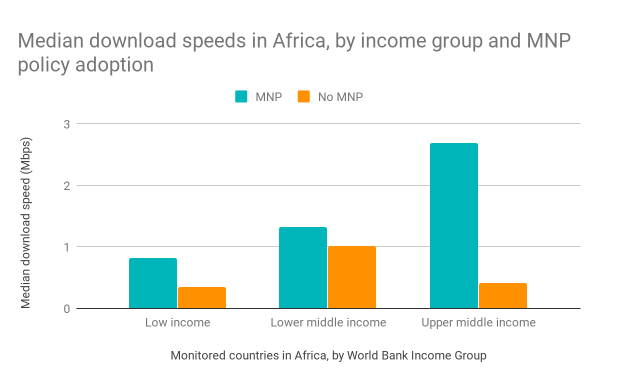
Overall, these indicators suggest that mobile number portability is a valuable tool in the suite of policy options available to countries as they develop their mobile broadband market. This fits in line with A4AI’s Policy & Regulatory Good Practices. The list identifies some of the most impactful actions policymakers and regulators can take in making broadband affordable for all.
Mobile number portability reinforces the principle of a liberalised market with an open, competitive environment. It gives users greater power and flexibility to leverage that competition to their advantage and in turn to reward innovative operators who deliver a higher quality of service and more affordable pricing. MNP allows smaller operators to attract new customers more easily and increase market competition within the broadband market. It then fits within this that the average user in a country with MNP will have access to cheaper prices, better speeds, and a more competitive market than a user in a country without it. We encourage the adoption of mobile number portability by those countries that have no done so and watch with enthusiasm those countries that are on their way towards it.
